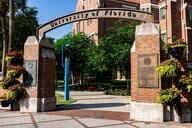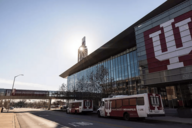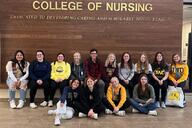You have /5 articles left.
Sign up for a free account or log in.
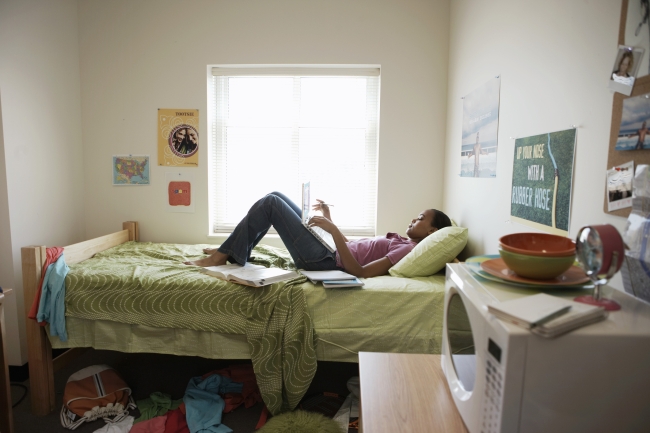
College Housing Northwest provides below-market rates on housing for college students in the Portland, Ore., area.
James Woodson/DigitalVision/Getty Images
Providing adequate, affordable housing for students is a national concern, as a rising cost of living adds inflationary pressure on colleges’ and universities’ limited residential availability.
A nonprofit organization in Portland, Ore., is purchasing apartment complexes to house students and students’ families exclusively, offering rates between 11 and 24 percent below market rents. College Housing Northwest (CHNW) looks to create a low barrier to entry and high barrier to exit for its student population, promoting access, community and student success.
A Nonprofit Solution
CHNW started in 1968 as the brainchild of then-Portland State University student Stan Amy to provide affordable housing for his peers.
After being evicted three times within 18 months as a student, Amy and peers worked in a student-run seminar on urban studies, evaluating the need for housing at Portland State, and landed on the solution of a nonprofit.
The organization’s first building, Goose Hollow Tower, opened in 1972 with 221 units.
The organization hosted a lottery to select which students would receive housing for the first year and “people lined up outside the door to get this more affordable housing,” CHNW executive director David Garnand says.
CHNW now owns five properties across Portland: The Amy, Goose Hollow, Curry Court, The 601 and its most recent addition, in March, Connery Place. In total, CHNW owns 649 units, housing around 800 students and an additional 200 family members or partners.
While the nonprofit started with a PSU focus, it has expanded to accept students from institutions across the city, including Pacific Northwest College of Art, the University of Portland and Lewis and Clark College.
“We’re not a governmental agency; you just have to be going to school. That’s all there is,” Garnand explains.
Students apply for CHNW housing before the start of the academic term and are typically placed on a one-year lease. Any student is eligible to apply, regardless of need, and Garnand has seen a trend among international students who live in CHNW housing.
“The most common refrain I hear is, ‘I went to College Housing Northwest because it was the most inexpensive place I could find,’ and then, ‘They were super helpful and supportive while I was there,’” Garnand says.
In 2020, CHNW established Affordable Rents for College Students (ARCS), which subsidizes housing for low-income, housing-insecure or unhoused students. Institutions and nonprofits partner with ARCS to identify students in need of housing, and ARCS discounts CHNW units around 50 percent.
“We started with about 20 spots for students, and now we’re close to 60,” ARCS director Pamela Blumenthal says.
ARCS also partners with the Oregon Department of Human Services, which will pay full rents for some students who qualify.
A National Need
Over the years, residential housing has become constrained on college campuses, and institutional leaders have turned to other solutions to provide students with housing. The 2023 Student Well-being Institutional Support Survey (SWISS) found that, across 25 institutions nationwide, only 64 percent of students surveyed agreed there were adequate housing options on campus.
Institutions are also investing in nontraditional solutions to accommodate students, like placing students in graduates’ homes, establishing a university-run apartment complex off campus providing a financial incentive, or using shipping containers to house students. Other universities have eliminated residency requirements and left students to their own devices to find housing off campus.
Many students are not eligible for government-sponsored affordable housing programs, like Section 8 housing, further compounding the problem.
“We know that 50 percent of college students nationally, and this is true in our area, too, are housing insecure, and 20 to 25 percent identify as homeless,” Blumenthal says.
In the Portland metro area alone, an estimated 100,000 students are living and commuting to institutions. PSU, for one, does not have enough housing for all of its students on campus, and local community colleges have no residential housing, Garnand says.
“Especially, [institutions] don’t have those two-bedroom, one-bedroom units,” Garnand adds. “A lot of students have children or are not living alone, and so they really think of us as augmenting their [availability].”
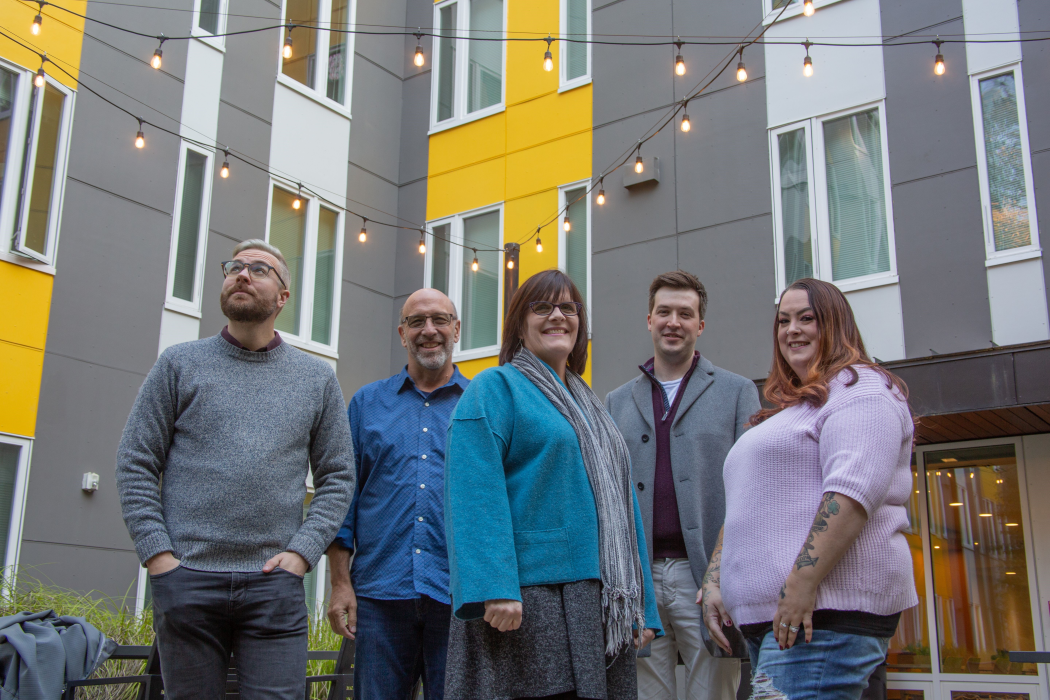
College Housing Northwest
Cost a Detriment
A high cost of living and rising housing prices has also made student housing less affordable. Of SWISS student survey respondents, 42 percent disagreed that their institution provides affordable housing options.
Portland’s student housing market, like many others, remains steep.
The University of Portland will charge students $14,000 for a traditional single room for the 2023–24 academic year and $10,400 for a traditional double occupancy. Portland State University’s Broadway residence hall charges $11,625 for a single-occupancy room and $7,785 for a double-occupancy room for the academic year.
CHNW, in comparison, charges $1,550 per month for its two-bedroom apartments at the Goose Hollow Plaza, or around $15,550 for the academic year. A studio apartment from CHNW at The Amy runs about $1,250 per month, or approximately $12,500 for the academic year.
“We often talk about affordable rents, but the bottom line is, is that even our local, below-market rents are still super expensive,” Garnand says.
The majority of apartments available for rent in Portland range above $2,100 per month, according to data from rent.com. The average rent for a one-bedroom apartment in Portland is about $1,582 per month and $1,925 per month for a two bedroom.
Access and Equity
Having a student focus for CHNW means having low barriers to entry. The organization does not require a co-signer or a financial background check in its application. CHNW staffers aim to engage students in learning about how to lease an apartment and keep deposits low.
“It’s really an equity and access issue,” Garnand explains. “It’s amazing how small the barrier can be to block some people.”
Having rental history is critical for many of these students, as it makes it easier for students to sign their next lease after graduation.
CHNW also engages in eviction prevention. “We say, if you get evicted from CHNW, you really had to work at it, because everybody is doing everything they can to make sure you don’t get evicted,” Garnand jokes.
The nonprofit has a grant program to support current renters who are falling behind on their payments. Any student who does get evicted can appeal.
Resident Connection Opportunities
Creating a welcoming and safe living environment for students is a secondary priority for CHNW, as the organization looks to promote overall student well-being.
Staff hold pizza parties and provide doughnuts and coffee during finals week, similar to a residential dorm. On-site student employees, called community assistants, fulfill the residential adviser position to supervise residents, handle noise complaints and the like. CHNW has nine CAs, who are paid hourly but also receive rent credit.
In addition, CHNW partners with local organizations to stock a community food pantry for its students, so they don’t have to choose between groceries and rent.
ARCS coordinators provide additional support for residents, meeting with students regularly, checking in with them and their institutions.
While there’s a low barrier to entry and high barrier to exit, students aren’t off the hook for being responsible community members. CHNW leaders take on the role of educators in teaching students to be obligated for their living spaces and living well with others, because for many, it’s their first time renting an apartment.
“It’s about balancing this kind of collaboration and community with accountability,” Garnand says. “Some people are not going to make it through the system, but very few, very rarely and not without great effort to not have that happen.”
If your student success program has a unique feature or twist that you believe is worth modeling, we’d like to know about it. Click here to submit.

